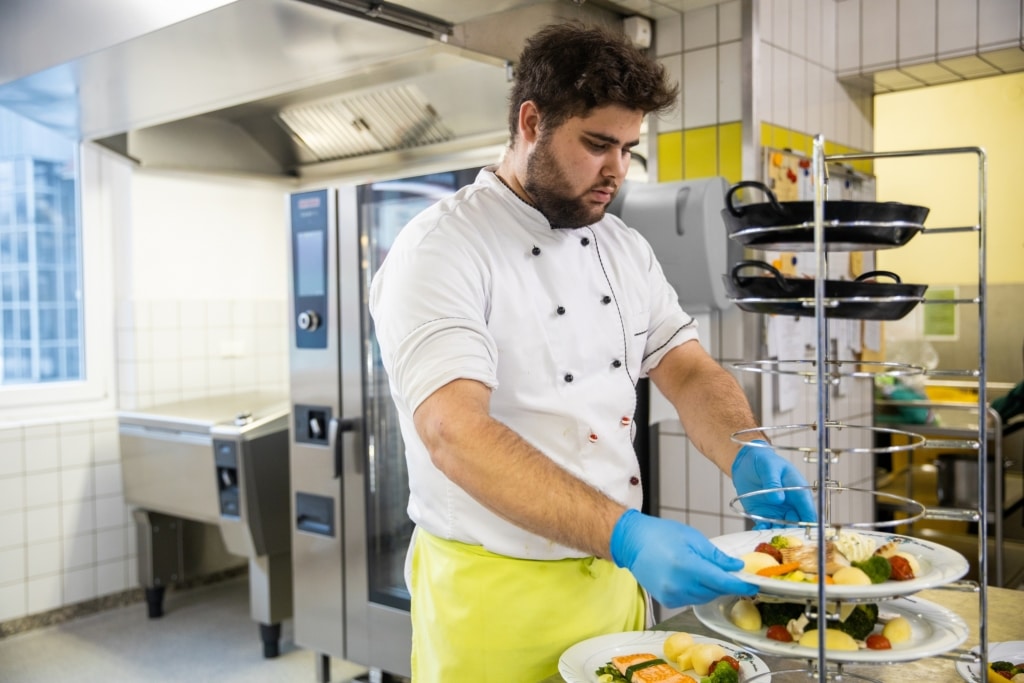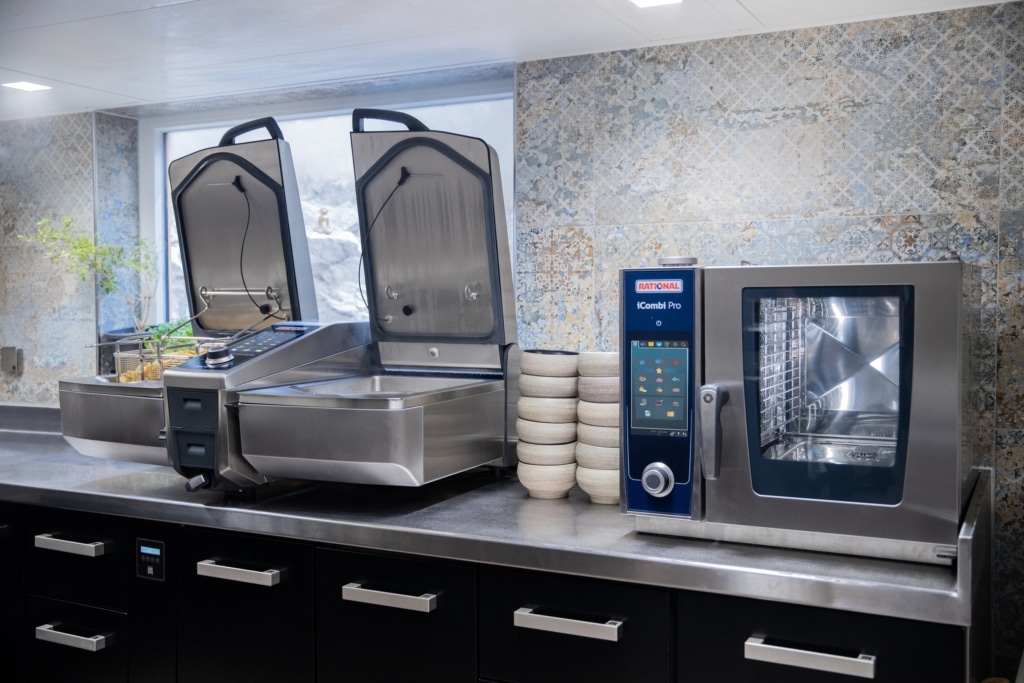
Sustainability is becoming more and more important in the gastronomy sector. After all, for many guests, the responsible use of resources is a criterion through which they choose their venue and food, says Rational.
At the same time, investors are increasingly demanding verifiable sustainability before they include a company in their portfolio. Not to forget: restaurants, catering companies and hotels can save a lot of money by acting sustainably, the company highlights.
In order to strengthen the catering industry in terms of sustainability, Rational has developed two new cooking systems: iCombi Pro, a combi-steamer, and iVario, which works with contact heat. Thanks to intelligent functions as well as innovative technology, both demonstrably manage to save resources, increase productivity in the kitchen and thus produce sustainably.
“For Rational, it’s a matter of importance to act sustainably and support its customers in doing so,” says Thomas Hofer, managing director at RATIONAL Kitchen & Catering Equipment Trading FZCO. “The lynchpin are the cooking systems, which stand out for their ever-increasing productivity combined with ever-lower consumption of resources.”
“In figures: With the new iCombi Pro 20-2/1, up to 50 % more salmon slices and up to 50 % more frozen potato wedges can be prepared in one load compared to the previous model. For French fries, the quantity can even be doubled. The fact that the iCombi Pro has been awarded the internationally recognised EnergyStar shows that it’s also energy-efficient,” he adds.
“Our combi-steamers have received awards for their energy management since the introduction of the corresponding category in 2011. For this seal, the consumption values are determined by an independent laboratory registered with the Environmental Protection Agency (EPA) in accordance with American Society for Testing and Materials (ATSM) standards. The results are confirmed by Zurich University’s practical project of Applied Sciences,” says Hofer.
“Thirty four per cent less electricity and 53% less water consumption, with a larger culinary range, clearly speak for the use of multifunctional cooking systems in kitchen practice.”

In addition, the lower raw material input makes a combi-steamer a green member of the kitchen crew. This is because preparation with steam in combination with the shorter cooking time reduces the moisture loss in the meat by up to 30% compared to conventional cooking methods. As a result, fewer raw materials are needed in the kitchen, which in turn means less production time, processing and food transport.
The iCombi Pro also scores points with its new cleaning chemistry: It is phosphate-free, half the size of its predecessor tab and only half of the previous tabs are needed. Clearly a plus point for nature, which also pays off for the catering trade.
But the iVario also scores with high productivity. As its crucible is heated by several ceramic heating elements, which in turn are controlled individually and as required, the results are not only characterised by outstanding uniformity in partial and full loading, but also by low energy consumption compared to conventional cooking methods.
The figures are impressive: up to 100 % higher browning capacity, up to 40% lower energy consumption, up to 70% lower water consumption and up to 35% further reduction in cooking time with the pressure-cooking option.
However, sustainability at Rational does not only refer to the cooking systems, but the entire company is considered. Production, logistics and buildings must regularly comply with the internationally valid ISO standard.
Quality management has been put to the test since 1996, environmental management since 2010 and energy management since 2016. A further advantage of consistent entrepreneurial action.
In the past 10 years, the company-wide CO2 footprint has been continuously reduced and by 2019 will have been cut by half compared to 2010. The extensive testing is worthwhile, Hofer reports: “With the certifications, we can prove that we contribute to the environmental management of commercial kitchens and are thus once again a building block for their certification.”












